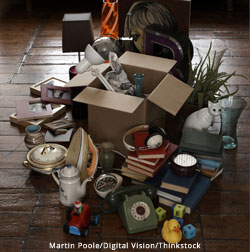In his blog, Edward Hays notes that the Alaskan Yupitt Indian people have a bigger world than we do since they interact with nature and inanimate objects with reverence and caring. For instance, if a woman from this tribe comes upon a piece of driftwood, she picks it up and turns it over so its underside can get some fresh air and sun. Hays observes: "By this deed she bestows a blessing on the Yula (spirit) of wood and in return in gratitude she receives a blessing from the wood's spirit."
 The Yupitt have an intimate relationship with the natural world that surrounds them. Although many of us have the same thing with our pets, very few can say that they have intimate relationships with the machines at work or their possessions at home. What is the source of this separation? Hays points to a worldview deformed by human feelings and dogma about our superiority over creation.
The Yupitt have an intimate relationship with the natural world that surrounds them. Although many of us have the same thing with our pets, very few can say that they have intimate relationships with the machines at work or their possessions at home. What is the source of this separation? Hays points to a worldview deformed by human feelings and dogma about our superiority over creation.
Next Post: Behaviors that Irritate New York City Subway Passengers
